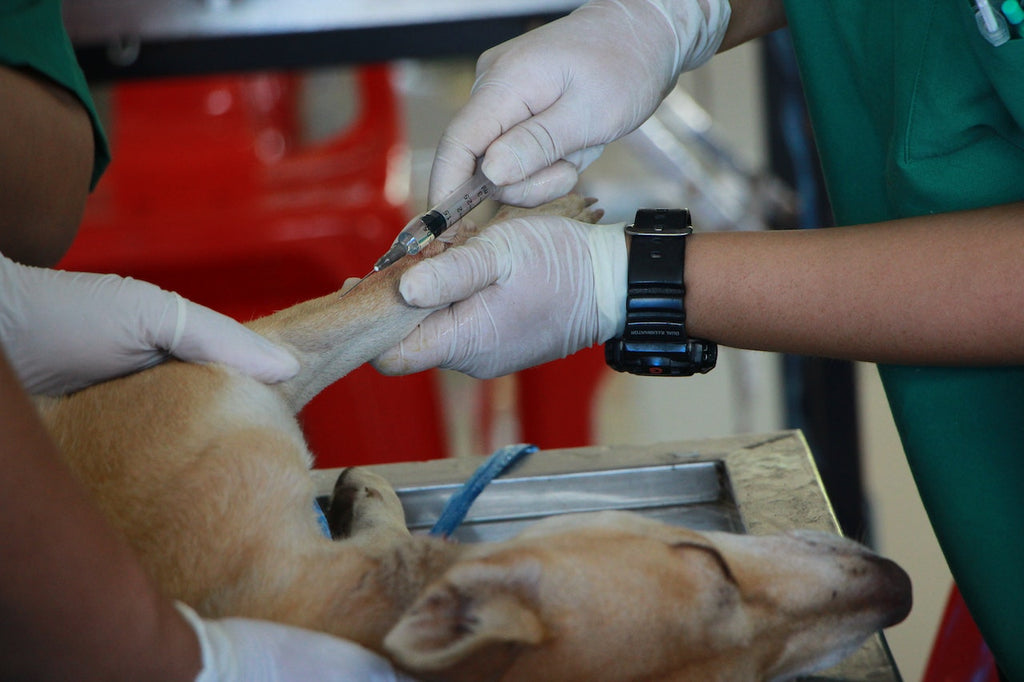
The Human Immunodeficiency Virus, more commonly known as HIV, is a virus that infects people and weakens the immune system, making it more difficult for the body to fend against illnesses and infections. The virus is most commonly passed from person to person through sexual contact, the sharing of needles, and from mother to child through nursing, pregnancy, or delivery. Some individuals may be curious about whether or not HIV may be caught by dogs because it is common knowledge that dogs are predisposed to certain illnesses and viruses.
What is HIV?
The human immunodeficiency virus (HIV) is a retrovirus that destroys cells of the immune system, especially CD4 cells and T cells. These cells are essential for the body's ability to ward off diseases. As soon as the virus enters the body, it immediately begins to proliferate and begins destroying these cells. As a result, it becomes increasingly difficult for the body to protect itself against other illnesses and infections. An infection with HIV can result in a condition known as AIDS, which stands for acquired immune deficiency syndrome. This illness is defined by significant damage to the immune system, which leaves the person susceptible to life-threatening infections and diseases.
Can Dogs Get HIV?
There is no evidence to suggest that dogs can contract HIV or that the virus can be transmitted from humans to dogs. HIV is a virus that is specific to humans and is not known to affect other animal species. While some animal species, such as non-human primates, have similar viruses to HIV, they are not the same virus and cannot be transmitted to humans or other animals.

There are several reasons why dogs cannot have HIV. These include:
HIV is a virus that is specific to humans
HIV is a human virus that is adapted to infecting human cells. It requires specific receptors on human cells to enter and infect them. These receptors are not present in dogs, which means that HIV cannot infect dogs.
Dogs have a different immune system
Dogs have a different immune system than humans, and their immune system is not susceptible to the same viruses and diseases as humans. HIV attacks and destroys the CD4 cells or T cells in humans, which play a crucial role in fighting infections. Dogs have a different type of T cells that are not susceptible to HIV.
HIV requires a human host
HIV requires a human host to survive and replicate. It cannot survive outside of a human body for long periods. Therefore, dogs cannot become infected with HIV by coming into contact with infected bodily fluids, such as blood or semen.
There have been no reported cases of HIV transmission from humans to dogs
There is no evidence to suggest that dogs can contract HIV from humans. The virus is highly specific to humans and cannot be transmitted to other animal species.
Dogs can contract their own immunodeficiency virus
Although dogs cannot contract HIV, they can contract their own immunodeficiency virus known as canine immunodeficiency virus (CIV). However, CIV is not the same virus as HIV and cannot be transmitted to humans.
Overall, dogs cannot have HIV due to several factors, including the virus being specific to humans, the differences in immune systems between humans and dogs, and the lack of reported cases of HIV transmission from humans to dogs. While dogs can contract other viruses and diseases, they are not at risk of contracting HIV. As such, pet owners need not worry about their dogs contracting HIV, and there is no need for routine HIV testing of dogs.
Other considerations
There are a number of reasons why HIV transmission from canines to humans is extremely rare. To begin, the virus does not reproduce in any other animal species, indicating that it is extremely particular to humans. Second, in order for the virus to enter cells and infect them, it needs a special receptor that is called CD4, but dogs do not have this receptor. Thirdly, canines' immune systems are not susceptible to the viruses and disorders that may affect human immune systems because canine immune systems are distinct from human immune systems. In conclusion, there are no known instances of HIV being passed from people to dogs or dogs to humans that have been reported. Both people and dogs are immune to HIV, and the virus cannot be passed from one species to the other. The human immunodeficiency virus (HIV) requires a particular receptor that is absent in canine hosts since it is a human-only pathogen. Canines are not at danger of catching HIV; nonetheless, they are susceptible to other viruses and illnesses, such as canine immunodeficiency virus (CIV) and canine distemper virus (CDV). Because of this, pet owners do not need to be concerned about the possibility of HIV transmission to their dogs, and there is no requirement that canines undergo routine HIV testing.
Concluding words
In conclusion, dogs cannot have HIV due to several factors, including the specificity of the virus to humans, the differences in immune systems between humans and dogs, and the lack of reported cases of HIV transmission from humans to dogs. While dogs can contract other viruses and diseases, they are not at risk of contracting HIV. This information can be reassuring for pet owners, as they need not worry about their dogs contracting HIV or undergoing routine HIV testing. However, it is important to note that dogs can still contract other serious diseases, and it is essential to keep them up to date on their vaccinations and routine check-ups with a veterinarian.



